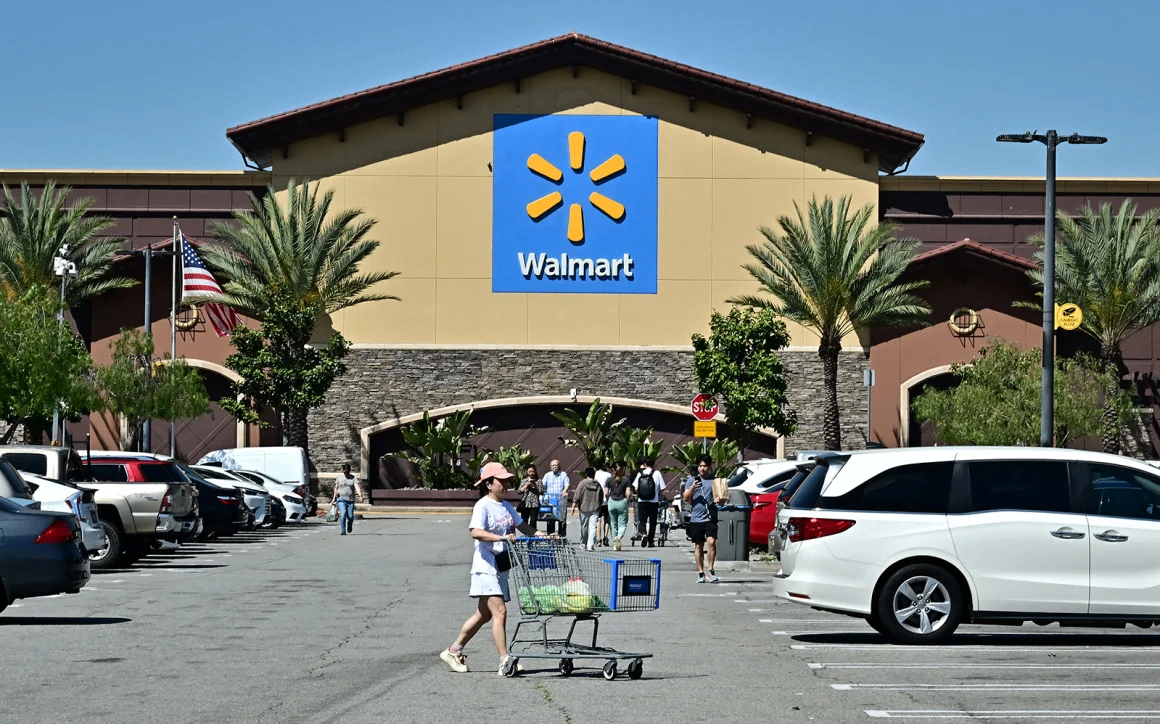



 ${ lang === 'zh' ? '中文': 'ENG' }
${ lang === 'zh' ? '中文': 'ENG' }




 ${ lang === 'zh' ? '中文': 'ENG' }
${ lang === 'zh' ? '中文': 'ENG' }
 ${formatTime('2025-05-21 18:10:25', 2)} ${formatTime('2025-05-21 18:10:25', 3)}, ${formatTime('2025-05-21 18:10:25', 1)}
${formatTime('2025-05-21 18:10:25', 2)} ${formatTime('2025-05-21 18:10:25', 3)}, ${formatTime('2025-05-21 18:10:25', 1)}

Retail giants Walmart and Target have resumed purchasing from some of their Chinese suppliers after temporarily halting orders due to concerns surrounding newly imposed U.S. tariffs. According to two factories in China, which supply goods to these major American retailers, business activities that had been stalled for weeks are now cautiously picking up again.
This partial resumption of trade comes on the heels of a recent meeting between President Donald Trump and executives from Walmart, Target, and Home Depot. The retail leaders reportedly warned the president that if the tariff situation continues unresolved, American store shelves could soon face serious shortages.
Earlier this year, the U.S. dramatically raised tariffs on Chinese imports to 145%, sparking widespread disruption across global supply chains. As a result, many American companies either canceled or suspended their orders from China, leaving factories in limbo. While some operations are restarting, it remains unclear how extensive this rebound will be or how long it will last.
Vivi Tong, who runs a toy manufacturing plant in Anhui province, said her company has started receiving new orders from Walmart. She explained that the renewed activity follows speculation that tariffs could be reduced in the near future. However, she noted that clients are moving forward cautiously and are demanding price cuts to absorb some of the tariff burden.
“Retailers have little inventory left, and they’re trying to avoid major supply disruptions,” Tong said. “But we’re still facing a lot of uncertainty.”
In a related report from Hong Kong-based outlet Ming Pao, two ceramics suppliers attending the Guangzhou trade fair confirmed that Walmart had resumed some of their orders, although only on a limited basis. One supplier characterized the recovery as only “partial.”
Last month, before the full weight of the new tariffs took effect, Walmart had already asked many of its Chinese suppliers for discounts. This move reportedly angered Beijing and led to direct talks between Walmart representatives and China’s Ministry of Commerce.
Michael Hart, president of the American Chamber of Commerce in China, commented that this situation aligns with broader industry trends. He noted that many companies are now engaging in discussions with Chinese authorities to have certain goods exempted from tariffs—especially those considered essential or difficult to source elsewhere.
While some suppliers are seeing orders slowly resume, the damage isn’t easily reversed. Allen Yan, who owns factories in Zhejiang province producing pool-related products, confirmed that Target recently resumed an order previously delayed for two weeks. However, business from other clients like Costco and Sam’s Club remains on hold. Yan said he declined to offer discounts despite client pressure and warned that U.S. inventories may be significantly depleted within a couple of months if the situation continues.
The impact of these trade tensions reaches far beyond retail shelves. China’s export industry supports millions of jobs, and prolonged disruptions could have long-term consequences for both economies. Rachel Zhang, a textile manufacturer who supplies blankets and cushions to major U.S. retailers, said that her factory’s orders were abruptly halted earlier this month. She is now trying to pivot toward European and Japanese markets but admits the uncertainty is a serious challenge.
“No one knows how long this will last. Businesses can’t afford to wait six or nine months without clarity,” Zhang said. “It’s small and medium enterprises like ours that are taking the biggest hit.”